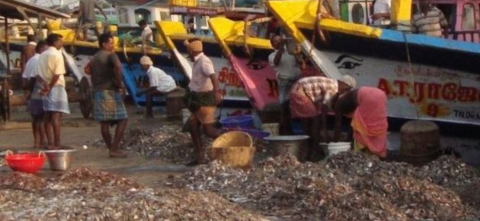
Researchers map path forward for gender-inclusive fisheries data
A team of 36 researchers from six continents has developed a comprehensive framework to address the persistent undercounting of women in small-scale fisheries data systems.

Bowfin or faux-fin? Reeling in the truth about these look-alike fish
Learn how to ID between bowfin, burbot, and the invasive northern snakehead by spotting key differences in body shape, coloration, and fins.

Making your real Christmas tree last through the holidays
Fresh tree, fresh cut and fresh water are essential in keeping your real Christmas tree fresh and hydrated throughout the holiday season.

The Mobile Irrigation Lab is on the move
Michigan State University’s Mobile Irrigation Lab offers on-farm evaluations of flow rate, system pressure and application uniformity to identify inefficiencies and recommend improvements that boost water- and energy-use efficiency.
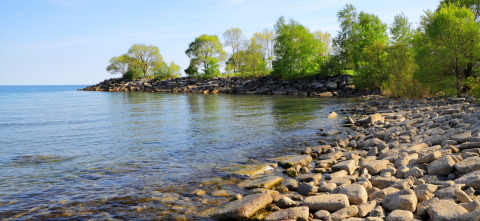
Spartans Making a Difference: Safeguarding Fish and Public Health
This week’s articles by MSU faculty, specialists, and students making a difference feature hidden viruses in lake trout, health disparities in wastewater, and chemical risks in drinking water mapped by AI.
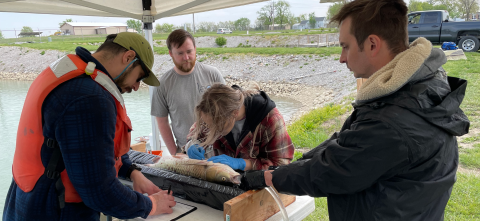
MSU-led research helps safeguard the Great Lakes from invasive grass carp through science-driven management
MSU scientists are using cutting-edge tracking technology and multi-agency collaboration to reduce grass carp threats to Great Lakes ecosystems.

MSU experts on COP30 climate change conference
The United Nations’ annual climate summit, the 30th meeting of the Conference of the Parties, or COP30, will convene in Belem, Brazil, beginning Monday, Nov. 10 through Friday, Nov. 21, to discuss the global response to climate change.
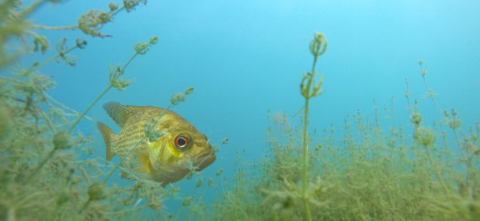
Why do we care about Chara?
Commonly referred to as muskgrass or stoneworts, Chara is difficult to identify by species, but as a group, can be easily discerned from other aquatic plants.

Stories offer rich history of the Great Lakes’ legacy
Transportation of goods, shipwrecks, commercial and recreational fishing, all tell the tale of human connection to the water.

Spartans Making a Difference: Toward Smarter Farms and Healthier Cities
This week’s articles by MSU faculty, specialists, and students making a difference feature smarter farm technology, biodiversity in vacant lots, and new evidence linking lead in food to health risks.

Getting Hooked on Fishing in Saginaw Bay
Annual camps help create the next generation of Great Lakes stewards, improve fishing knowledge and skills.
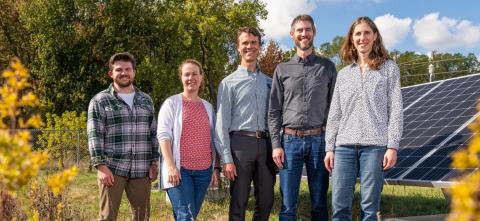
Farming meets solar power in new MSU project
Michigan State University scientists plan to build a first-of-its-kind outdoor lab to study how solar panels placed alongside crops could save water, improve soil health and support ecosystems, all while boosting farmers’ bottom line and preserving farm production.
